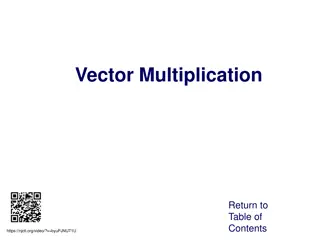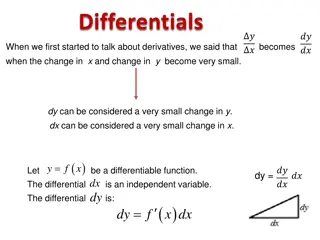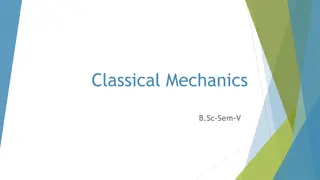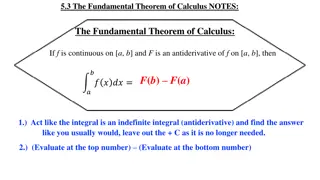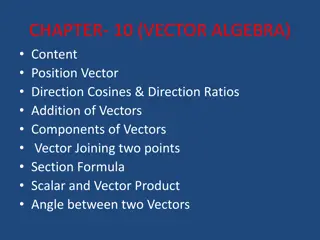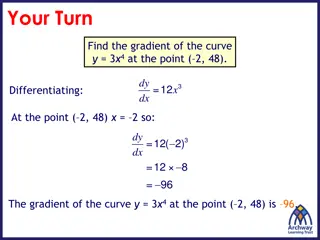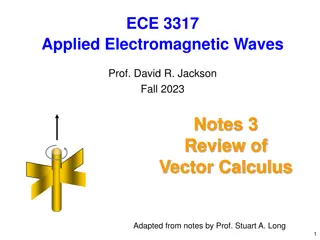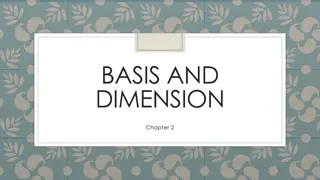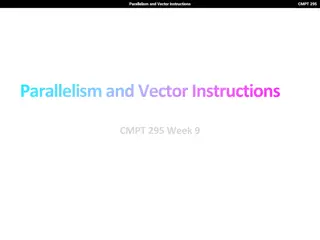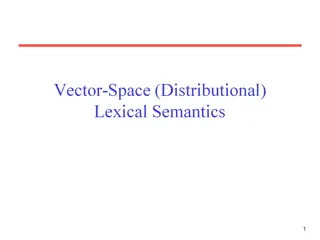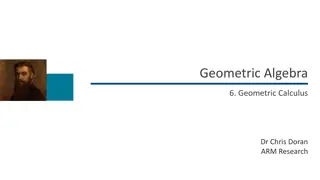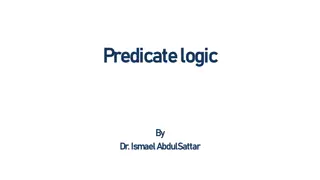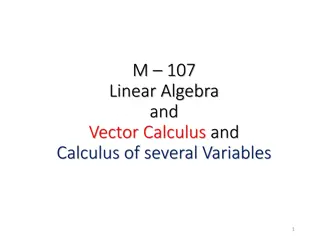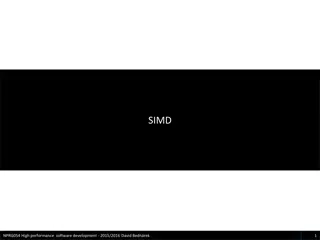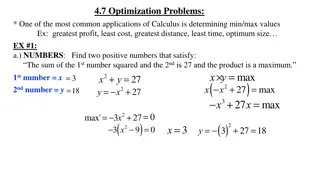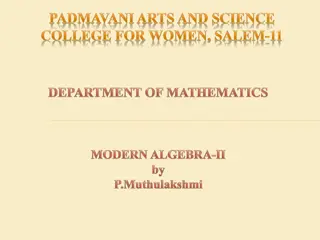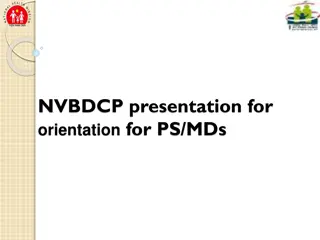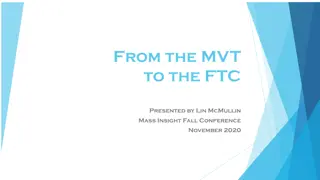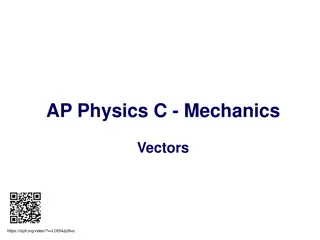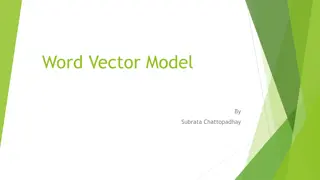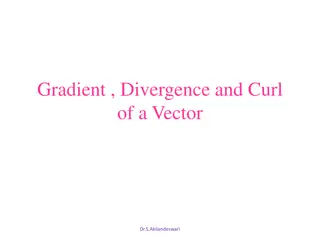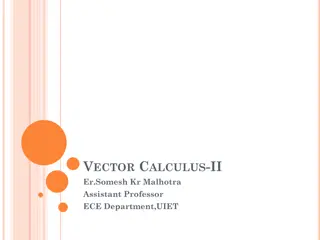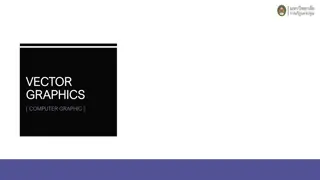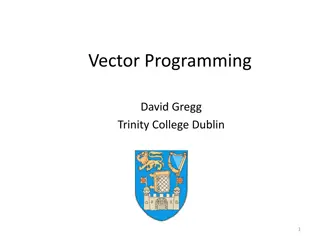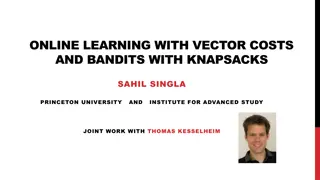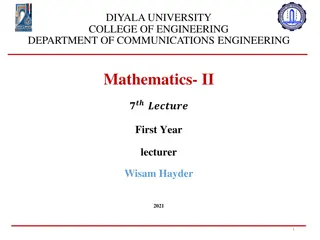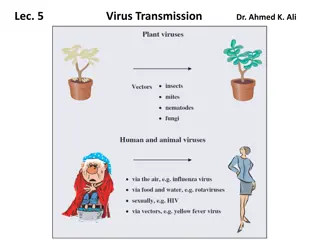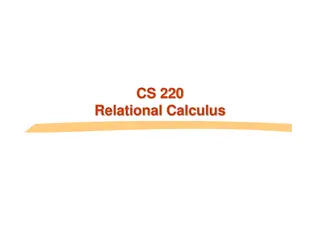Mathematics Course Selection Guide for Fall Semester
Academic advisors Olivia Biehle, Nathaniel Sulapas, and Jennifer McHam at the University of Texas provide guidance on selecting mathematics courses for the fall semester. The guide includes information on course sequences, considerations based on UTMA scores, AP credit recommendations, dual credit o
3 views • 20 slides
Understanding Dental Calculus Formation and Classification
Dental calculus, also known as tartar, is a mineralized bacterial plaque that forms on natural teeth and dental prostheses. It can be classified as supragingival or subgingival based on its relation to the gingival margin. This hard deposit is formed through the mineralization of dental plaque and c
5 views • 36 slides
AQA Level 2 Certificate in Further Maths
The AQA Level 2 Certificate in Further Maths is designed for high-achieving students to develop advanced skills in algebra, geometry, calculus, matrices, trigonometry, functions, and graphs. The course covers topics like number fractions, decimals, algebraic fractions, coordinate geometry, calculus,
7 views • 9 slides
Understanding Integral Calculus: Two Major Approaches & Antiderivatives
In this chapter, we delve into the fundamental concepts of integral calculus, focusing on two major approaches to mathematically generate integrals and assigning physical meanings to them. We explore antiderivatives, differentiation, integration, and the process of taking integration as the inverse
2 views • 59 slides
Understanding Vector Operations in Linear Algebra
Explore the world of vector operations in linear algebra through this detailed presentation. Learn about vector addition, scalar multiplication, field operations, and more. Gain insights into the notation of Fn and the significance of scalar multiplication and vector addition in linear algebra. Whet
8 views • 9 slides
Understanding Normed Vector Spaces for Nanotechnology Engineering
Introduction to normed vector spaces, focusing on defining norms for vectors in finite-dimensional spaces, exploring different ways to measure vector length, and understanding the concept of unit vectors and norm properties. This topic equips readers with the ability to calculate vector norms, norma
0 views • 9 slides
Vector Multiplication
Learn about vector multiplication, unit vectors, magnitude calculations, scalar dot products, cross products, and angle determinations between vectors. Explore video explanations and visual representations for a comprehensive understanding of vector mathematics concepts.
0 views • 11 slides
Understanding Related Rates and Differentials in Calculus
Derivatives involve very small changes in variables, leading to differentials. Related rates in calculus help us find how variables change in relation to each other. Learn how to solve related rates problems step by step with examples involving volumes, radii, and rates of change.
0 views • 11 slides
Understanding Classical Mechanics: Variational Principle and Applications
Classical Mechanics explores the Variational Principle in the calculus of variations, offering a method to determine maximum values of quantities dependent on functions. This principle, rooted in the wave function, aids in finding parameter values such as expectation values independently of the coor
0 views • 16 slides
Understanding the Fundamental Theorem of Calculus
The Fundamental Theorem of Calculus states that if a function is continuous on an interval and has an antiderivative on that interval, then the integral of the function over the interval is equal to the difference of the antiderivative evaluated at the endpoints. This concept is further explored thr
0 views • 14 slides
Understanding Vector Algebra and Its Applications
Explore the fundamentals of vector algebra, including position vectors, direction cosines, direction ratios, vector addition, scalar product, vector product, and more. Learn about the dot product, cross product, and the angle between two vectors. Visual aids and examples help clarify key concepts in
0 views • 18 slides
Calculus Examples and Practice
Explore various calculus problems involving finding gradients, equations of tangents and normals, and analyzing curves. Practice determining gradients at specific points, solving for coordinates, and differentiating equations to find tangent and normal lines. Understand the relationship between grad
1 views • 11 slides
Overview of Vector Calculus for ECE 3317 Course
This overview provides a brief explanation of vector calculus concepts essential for the ECE 3317 course on Applied Electromagnetic Waves. It covers del operator, gradient, divergence, curl, vector Laplacian, vector identities, and their applications in electromagnetic field theory.
0 views • 24 slides
Understanding Basis and Dimension in Linear Algebra
Basis and dimension are fundamental concepts in linear algebra. A basis is a set of vectors in a vector space that allows us to represent any vector by multiplying and adding the basis vectors. The dimension of a vector space is the number of elements in its basis. Linear independence, spanning sets
0 views • 13 slides
Understanding Parallelism and Vector Instructions in CMPT 295
Delve into the world of parallelism and vector instructions in CMPT 295 as you explore fixed-length vector intrinsics, RISC-V concepts, computer programming fundamentals, processor execution processes, scalar and vector loops, and more. Discover the intricacies of memory, data arrays, structs, integ
1 views • 45 slides
Understanding Subspaces and Span of Vector Sets
Subspaces are vector sets that satisfy specific properties like containing the zero vector, being closed under vector addition, and scalar multiplication. Examples illustrate these properties and concepts such as the zero subspace and column space. The relationship between column space, row space, a
1 views • 11 slides
Understanding Word Meaning through Vector Space Models
Explore how Vector-Space (Distributional) Lexical Semantics represent word meanings as points in a high-dimensional space. Learn about Semantic similarity, creating sample lexical vector spaces, and using word vectors to measure semantic relatedness. Discover how other contextual features and featur
0 views • 33 slides
Understanding Geometric Algebra and Calculus: A Deep Dive into Vector Derivatives and Maxwell Equations
Explore the world of geometric algebra and calculus through topics such as vector derivatives, Cauchy-Riemann equations, Maxwell equations, and spacetime physics. Unify diverse mathematical concepts to gain insights into analytic functions, differential operators, and directed integration.
0 views • 20 slides
Understanding Predicate Calculus: Symbols, Terms, and Variables
Predicate calculus extends propositional calculus by introducing symbols like truth values, constants, variables, and functions. It allows for precise manipulation of components within assertions, enabling the creation of general statements about classes of entities. Learn how predicates define rela
1 views • 14 slides
Linear Algebra and Vector Calculus Course Details
This course covers topics in linear algebra and vector calculus, including systems of linear equations, matrices, determinants, vector operations, functions of several variables, differentiation, and optimization. Textbooks by H. Anton and Swokowski are recommended, along with additional lecture not
0 views • 13 slides
Understanding SIMD for High-Performance Software Development
SIMD (Single Instruction Multiple Data) hardware support utilizes vector registers for high-performance computing. Vector instructions operate on multiple data elements simultaneously, offering scalability and efficient processing strategies. The use of wide vector registers enhances arithmetic oper
0 views • 41 slides
Applications of Calculus in Optimization Problems
Calculus plays a crucial role in solving optimization problems to find maximum or minimum values in various real-life scenarios. This content provides examples of optimizing for maximum profit, area, distance, and volume using calculus concepts. From finding optimal dimensions for fencing to maximiz
0 views • 10 slides
Fundamental Concepts in Vector Spaces and Inner Product Spaces
A vector space over a field F is characterized by operations such as addition and scalar multiplication. Subspaces, direct sums, linear combinations, linear spans, dimensions, and dual spaces are fundamental concepts in vector spaces. Moving into inner product spaces, the concept of inner products,
0 views • 13 slides
National Vector Borne Disease Control Program Overview
The National Vector Borne Disease Control Program (NVBDCP) focuses on preventing and controlling diseases such as Malaria, Dengue, Chikungunya, Filariasis, Japanese Encephalitis, and Kala-azar. Implemented at state level, NVBDCP aims to eliminate these diseases through strategic planning, policy mak
0 views • 9 slides
Understanding Calculus: From MVT to FTC with Lin McMullin
Join Lin McMullin in exploring the transition from the Mean Value Theorem (MVT) to the Fundamental Theorem of Calculus (FTC). Discover the significance of MVT, Fermat's Theorem, Rolle's Theorem, and the Mean Value Theorem, all crucial concepts in calculus. Engage in graphical explorations, proving m
0 views • 45 slides
Language Operations for Quantum Computers: Implementing Vector-Based Approaches
Exploration of language operations suited for quantum computing, focusing on vector-based techniques for NLP tasks such as text search, factorization, classification, and logic operations. Topics include analogy, composition, inference, and the significance of negation in semantic vector operations.
0 views • 23 slides
Understanding the Fundamental Theorem of Calculus
Explore the connection between differential calculus and the definite integral through the fundamental theorem of calculus, which allows for the evaluation of complex summations. Discover the properties of definite integrals and how to apply the theorem to find areas under curves. Practice evaluatin
0 views • 15 slides
Understanding Vectors in AP Physics C: Mechanics
Explore the fundamental concepts of vectors in AP Physics C: Mechanics, including scalar vs. vector quantities, vector operations, and vector multiplication. Discover the significance of vectors in explaining and predicting physical phenomena through graphical methods and mathematical equations. Div
0 views • 28 slides
Understanding Word Vector Models for Natural Language Processing
Word vector models play a crucial role in representing words as vectors in NLP tasks. Subrata Chattopadhyay's Word Vector Model introduces concepts like word representation, one-hot encoding, limitations, and Word2Vec models. It explains the shift from one-hot encoding to distributed representations
0 views • 25 slides
Understanding Gradient, Divergence, and Curl of a Vector with Dr. S. Akilandeswari
Explore the concepts of gradient, divergence, and curl of a vector explained by Dr. S. Akilandeswari through a series of informative images. Delve into the intricacies of vector analysis with clarity and depth.
0 views • 13 slides
Understanding Vector Calculus II Concepts with Examples by Prof. Somesh Kr. Malhotra
Explore advanced topics in vector calculus including gradient, divergence, curl, and theorems like the Divergence Theorem and Stokes' Theorem. Follow along with examples presented in Cartesian, spherical, and cylindrical coordinates to deepen your understanding of vector calculus concepts.
0 views • 29 slides
Understanding Vector Graphics in Computer Graphics
Vector graphics in computer graphics are defined by 2D points connected by lines and curves to form shapes. Commonly found in SVG, EPS, PDF, or AI formats, they differ from raster graphics like JPEG or PNG. The W3C standard for vector graphics is SVG, allowing scalable and resolution-independent ima
0 views • 4 slides
Understanding Vector Programming and Machines
Vector programming involves efficient processing of data through SIMD models, parallel computing, and vector extensions in architectures like SSE and AVX. Programming vector machines in C requires addressing challenges with automatic vectorization related to pointers and data layouts.
0 views • 58 slides
Advances in Online Learning with Vector Costs and Bandits with Knapsacks
Explore cutting-edge research on online learning algorithms dealing with vector costs and bandits, including applications in load balancing and bandits with knapsacks. The studies cover topics such as regret minimization, minimizing vector costs, and maximizing rewards while maximizing budget constr
0 views • 17 slides
Understanding Vector-Valued Functions and Motion in Space
Explore the concept of vector-valued functions and motion in space, including curves, tangents, position vectors, scalar functions, derivatives, and differentiation rules. Learn how to represent curves in vector form and understand the smoothness of a curve based on its derivatives. Gain insights in
0 views • 28 slides
Vector Art Services
At ArtWorkLady, we specialize in providing high-quality Vector Art Services to businesses worldwide. Whether you need raster to vector conversion, logo vectorization, or product illustrations, our experienced team delivers precise and scalable vect
2 views • 5 slides
Understanding Virus Transmission via Vectors in Hosts
Viruses must be propagated and transmitted to new hosts for survival. They can be spread via vectors like arthropods, which acquire and transmit viruses during feeding. This transmission can occur quickly through the vector's mouthparts or more slowly via circulation in the vector's body. Plant viru
0 views • 14 slides
Understanding Divergence and the Divergence Theorem in Vector Fields
This content discusses the concept of divergence and the divergence theorem in vector fields through detailed examples and explanations. It covers topics such as finding divA in different coordinate systems, calculating charge density in regions based on given vector fields, and applying the diverge
0 views • 8 slides
Introduction to Relational Calculus and Algebra in Database Management
Explore the fundamental concepts of relational calculus and algebra in the domain of database management. Understand the differences between declarative and imperative query languages and learn to retrieve information using practical examples and theoretical frameworks such as tuple relational calcu
0 views • 23 slides
Understanding Transformer Vector Groups in Transformer Systems
Transformer vector groups play a crucial role in determining the phase relationships between high and low voltage sides in transformer windings. Proper understanding of vector groups is essential for parallel connection of transformers to prevent phase differences and potential short circuits. The a
0 views • 36 slides






